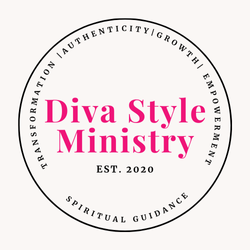Every person alive has a set of core values and beliefs about life that influences the vision they have of the future, how they view their past, and how they view the path of their spiritual development.
Core values – when referring to those held by individual human beings - are the fundamental, foundational beliefs of a person. These core values and beliefs often develop in childhood, and can be strongly tilted toward success or failure, abundance or lack, and how you see yourself. They can dictate your behavior and help people understand the difference between right and wrong.
Some core values that we as a group might share include Dignity – because a belief in the inherent worth and dignity is affirmed and promoted by the first Unitarian Universalist (UU) principle. I believe that each and every human being is imbued with inherent worth and dignity when they are formed. They don’t have to do anything to earn it, these qualities are there just because we ARE.
Two more core values are those of equity and compassion – both of which are mentioned in the second UU principle, which espouses Justice, equity, and compassion in human relations. It’s unfortunate to see that in today’s world, compassion seems to be in short supply. Tempers are shorter than ever, people seem more occupied with what can be done to trigger each other rather than encourage each other, and justice sometimes seems in short supply.
Equity, as described in a book titled Social Equity and the Urban Environment by Jim Falk, derives from a concept of social justice. It represents a belief that there are some things that people should have, some basic needs that should be fulfilled, and that burdens and rewards should not be spread divergently – that is, more to one segment of society than another, and that governmental policy should be directed with impartiality, fairness and justice toward these ends.
What might it look like if justice, equity and compassion were deployed throughout our human relations? Can any of us truly say that in our relationships, we treat each other justly, equitably, and compassionately 100% of the time?
I am very sure that I can’t yet make that statement, though I continue to strive for those qualities. With justice, equity and compassion as core beliefs, we can make progress toward living a life that exemplified the second principle.

The third UU principle, Acceptance of one another and encouragement to spiritual growth in our congregations, list two core values – acceptance and encouragement as part of the principle. Acceptance can be difficult to define, however – when discussing human psychology, it is defined as a person’s assent / agreement to the reality of a situation and recognizing a condition without attempting to change it or protest it.
Thinking of our relationships with people around us – how many people can see the reality of another person and recognize their qualities, their being and their “condition” without attempting to change it? Especially with our loved ones and friends, we are almost unable to let things be, just as they are – we want to spare our loved ones pain and difficulty – but is that truly what is best for them?
My mother often said to me that she couldn’t tell me everything I’d need to know to prevent me from feeling any pain at all, and even if she could, she probably wouldn’t. Not because she wanted to see me in pain, but because sometimes I needed to feel the discomfort of learning a lesson that would carry me through the rest of my life.
So, we’ve determined so far that there are core values that we as human beings can hold and employ in our lives, and that the first three of the Unitarian Universalist principles which guide that faith have core values mentioned in their text. So far, it sounds like being a UU is a great way to encourage development and positive reinforcement of positive core values. Yay for us!
But what about those people we know, those who move through our lives and our hearts, who don’t happen to be Unitarian Universalists? Where do they get their core values and beliefs from?
A lot of these ideas – these core values - come from your parents, but they can also be influenced by general society, the TV shows or movies you watched growing up, the friends you had, their parents, your teachers and what was happening in the world as you grew up. All of the information reflected on the news affects your values and your beliefs as well – whether you’re an avid watcher of broadcast news or not. Many of these things in your mind you don’t even consciously know are there.


Let’s explore beliefs just a little more, since I hadn’t mentioned them earlier. The word belief can be defined as trust, faith or confidence in someone or something. As a child, I had a strong belief that my parents would take care of me – nothing could hurt me as long as they were around. For a long time, I had a child’s belief that my Daddy was invincible – he was strong, he was smart, he was, after all, called “Big Chuck” for a good reason! My belief in his invincibility was shaken when he passed away suddenly from a stroke. My Superman was gone – and with him went some of my innocence. He was a good man – so what happened? How could he just be taken from us so suddenly?
One of my core beliefs – that my Daddy would always be there for me – was gone. It took a while for acceptance to grow, and for me to realize that while I was going to miss him, he’d left me a legacy of strength – another core value – and of love, and that I could employ my intelligence and insight, I could seek guidance, and that I could put in the hard work needed to help me keep living and keep growing.
When something strikes at our core values and beliefs, we as human beings can act unconsciously – and sometimes, those unconscious actions can lead us down the wrong path.
There is a solution – when we consciously work on our spiritual development – the process by which we become more awakened and more conscious, and where our personalities change and grow towards a “better personality.” When we believe in something beyond the material universe and develop an awareness of realities outside of time and space, we can start to look beyond accumulating possessions and power and look for a deeper meaning to life.
A shift in emphasis toward how we can help others and how we can serve the world around us occurs as we grow spiritually. We can also develop an awareness, becoming much more self-aware about our core values and beliefs and whether we have specific ideas or not.
Positive & Negative Core Beliefs
Everyone has both positive and negative core beliefs. The more positive thoughts you have, the more positively you’ll behave, as you work toward achievement. These positive beliefs include things like believing you are worthy, safe, competent and capable, appreciated, accepted, knowledgeable, and so forth.
Negative beliefs are often focused and based on your personality or inner self, as well as on a negative thought that someone expressed about you or based on something you said about yourself. These negative beliefs can be very limiting to your self-esteem. That’s why you can meet two people who have the same job, make the same amount of money, and one will be happy and satisfied, while the other person will inwardly feel miserable.
Finding Out Core Values & Beliefs Are Negative
You may not even realize you have beliefs that are holding you back. If you’ve watched person after person succeed at something that you want to do, are you able to identify why, so that you can improve your performance, or are you not able to accept that a core idea or belief you have is incorrect and may be holding you back?
One idea a lot of people have that is very limiting is the idea of money being finite. The truth is more money can always be made, but you may have to shift your paradigm and adjust your core beliefs about work and effort to create it first. Once you discover that you have negative core beliefs that are holding you back, you can work on turning them into positives.
Willingness to Change Brings More Success
If you want to embark on or continue a journey to personal and spiritual development, be willing to challenge your core values, beliefs, ideas, and even the vision you’ve created for your life. Until you know what’s true, accurate, and based on facts rather than on opinions, false beliefs, or “It’s always been done that way,” it’ll be hard to get a clear picture of where you want to go and the advancements you want to make.
It may be the difference between deciding to become a Doctor or a Nurse. Neither career is a wrong choice. However, one might be better for you, considering your likes, dislikes, existing skills, your health, your interests, goals, and other preferences.
As you review your core values and beliefs as you create and manifest your spiritual development plan, you’ll come to many surprising realizations. Some of them will be a shock, others, not so much.
The critical point is to realize that the ideas you have right now, even your most core beliefs and values, may change as you continue to grow and mature, and some of those long-held and cherished beliefs will turn out to be just not true.
For instance, it’s not true that you can’t lose weight. It’s not true that you cannot start your own business. It’s not true that you aren’t good enough. It’s not true that it’s too late for you to write a book and go on tour as a writer. It’s not true that you can’t find a spiritual home that encourages a free and responsible search for truth and meaning. It’s not true that you can’t start graduate school in your fifties and decide to become a minister.
What is true is that you can do anything you put your mind to. It’s true that you can continue to grow and change and get better in whatever activity you wish to. It’s true that you can learn a new language, or a new skill, or a new instrument when you want to. It’s true even if you find that you have limiting core beliefs and values, you are fearfully and wonderfully made and that you have the power to turn those limiting beliefs and values around.
It’s true that there is a powerful and benevolent force within this universe that will work with you to help you achieve your goals and dreams – and that you can find a way in, around, or through whatever is slowing you down.
The Persian poet Rumi is now one of my favorite writers, and I’m learning about his inspirational writings – I want to share this one with you:
“You were born with wings, why prefer to crawl through life?”--Rumi
Spread your wings and fly – use the power of your positive core values and beliefs to fuel your spiritual development, shake off your chains, and GO! “What you seek, is seeking you,” and sing like the birds sing, not worrying about who hears or what they think.





